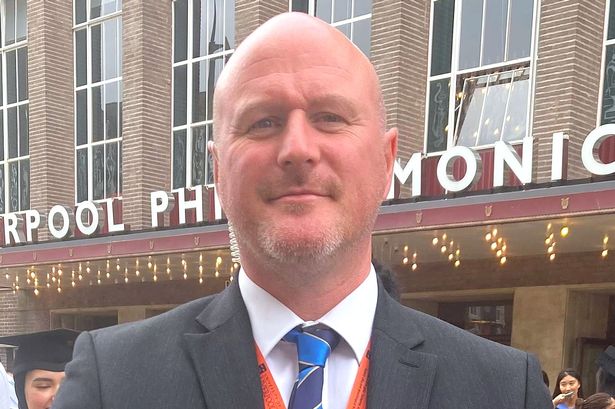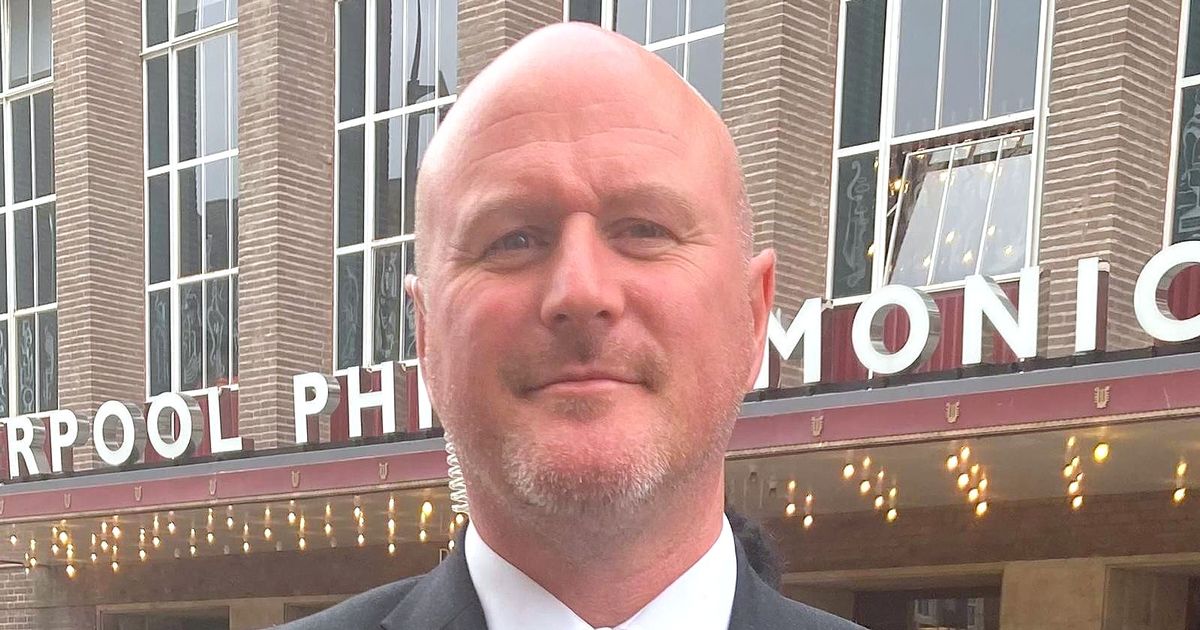David Ellis visited A&E when he lost the feeling in the right side of his face David Ellis knew something was wrong when he lost all feeling down the side of his face(Image: UGC)
David Ellis knew something was wrong when he lost all feeling down the side of his face(Image: UGC)
A Liverpool man who feared he was having a stroke was later given a devastating diagnosis. Earlier this year, David Ellis, 48, began experiencing a loss of feeling down the right side of his face. After visiting A&E, scans revealed a high-grade brain tumour.
David said: “I went to A&E because I thought I was having a stroke. Never in my wildest dreams did I imagine it was a brain tumour. To say I was devastated would be an understatement. However, I was reassured by the speed with which I was assessed by the clinical team at The Walton Centre and scheduled for my operation.”
Due to the tumour’s location – close to areas of the brain that control speech and understanding – specialists at The Walton Centre recommended an awake craniotomy: a complex procedure where patients remain conscious during surgery.
The technique allows surgeons to test a patient’s speech, memory and movement in real time, helping to ensure only the cancerous tissue is removed while protecting healthy brain function.
David said: “When they suggested an awake craniotomy, I really wasn’t sure. But when they explained it was the safest way to remove the tumour while protecting my speech and memory, I agreed.
“I was nervous, but watching the patient information video reassured me. Every staff member was so supportive and understanding; they helped me feel ready.”
David’s operation took place over the summer, and surgeons were able to remove the entire visible tumour. He has since completed a course of radiotherapy at The Clatterbridge Cancer Centre, and to date, the cancer has not returned.
Highly Specialist Speech and Language Therapist Hannah Jones-Reynolds, who supported David before, during and after his operation, said: “It’s incredibly important for brain tumour patients having awake craniotomies that function is preserved. I always feel honoured when I can support a patient through such a life-altering experience.”
Consultant Neurosurgeon Farouk Olubajo added: “It’s vitally important to us at The Walton Centre that patients get the best treatment we can offer when they need it most. Having real-time feedback from the patient during an awake craniotomy is crucial to preserving function and keeping them safe.”
Reflecting on his journey during International Brain Tumour Awareness Week, David said he now realises there were signs he missed before his diagnosis.
He said: “One time I was in a meeting and just couldn’t speak, and another time I fell in the road and couldn’t get up easily. They seemed like minor blips at the time, but I should have known then to get checked out.”
David now hopes his story will encourage others to seek help if they notice unusual symptoms. He said: “I feel incredibly lucky that The Walton Centre was able to remove the whole tumour and give me the best chance possible.
“The whole experience has inspired me to support others going through similar situations.”
